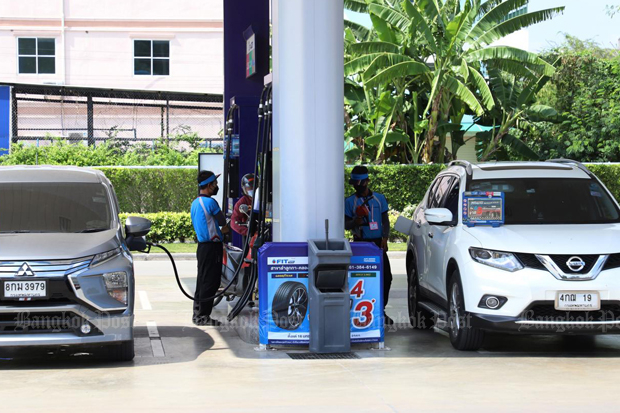
The Petroleum Refining Industry Club, a unit of the Federation of Thai Industries, has insisted the current gross refinery margin (GRM) is reasonable, rebutting an accusation that oil companies are overcharging customers for refined oil.
GRM, the difference between prices of crude oil and refined oil, refers to costs added to the crude oil price during the refining process. It eventually becomes part of the retail oil price that drivers pay at petrol stations.
Last week, Kla Party leader Korn Chatikavanij raised doubts over the high GRM and called on the government to put a cap on the refinery margin and impose a windfall tax on oil refineries to control oil retail prices, which continue to rise amid the Russia-Ukraine war.
He said oil refinery margins increased by 10 times per litre, standing at 8.5 baht on June 10, compared with 0.87 baht on June 10 last year and 0.88 baht on June 10 in 2020.
The club said the accusation that oil companies are making a high profit is a misunderstanding.
"A tenfold increase to more than eight baht is inaccurate," according to a statement from the club on Monday.
Average GRM increased by only 0.47 baht a litre to 1.19 baht a litre in the first quarter this year, up from an average GRM of 0.72 baht a litre during 2018 and 2019, the club said.
Average refinery margins during the pandemic years of 2020 to 2021 remained very low. If they are used to compare with GRM calculated when infections slowed down in the first quarter this year, people will be misled into thinking GRM has increased to an unusually high level, said the club.
Crude oil is turned into different types of refined oil, including diesel, gasoline, jet fuel, liquefied petroleum gas and fuel oil. Some are not profitable, causing oil companies to come up with "average" ex-refinery prices, based on the reference price of refined oil in Singapore.
According to the club, various expenses are incurred during the oil refining process, ranging from a crude premium fee to transport, operation costs and insurance fees.
The crude premium fee is added to the crude oil price by producers, citing many factors, including the insecurity of oil supply during the war.
Oil refineries also need to allocate a budget of 50 billion baht to improve production technology to make diesel that meets the higher environmental emission standard of Euro 5, according to the club.







